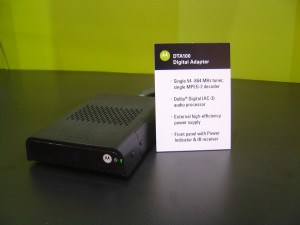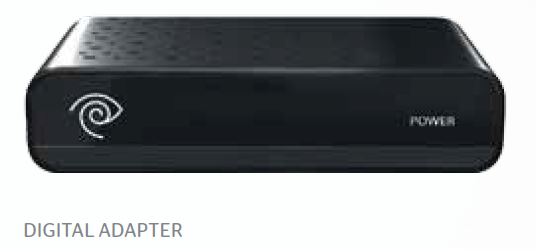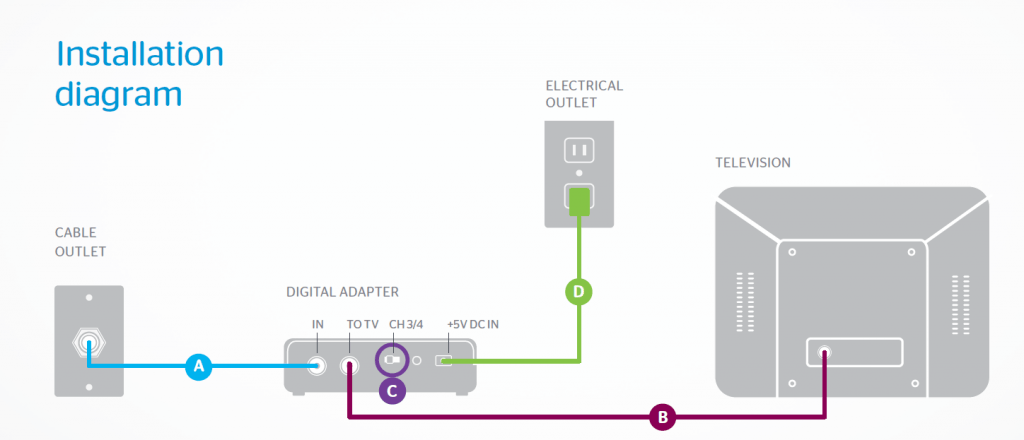Customers of Time Warner Cable in Maine preparing for the cable company’s all-digital conversion that will eventually impact every customer nationwide are reporting more problems with the equipment the cable company is supplying to those without set top cable boxes.
Frank Dobbelaere from Augusta is disgusted with the digital box conversion, and is calling the cable company “anti-consumer.”
“They can cut service costs, forgo capacity upgrades and charge indefinitely per device, leaving consumers with inconveniences, obstacles and surcharges,” Dobbelaere says. “Time Warner Cable staff said the digital cable adapters (DCA) are mandatory, for everything, unless you have a digital cable box per device. HDTVs with digital tuner do not get a pass. I quote: ‘No adapter = no TV. Cable TV is going to be password protected.'”
Indeed, Stop the Cap! has heard from several customers in Maine who report Time Warner Cable’s new digital conversion program even impacts customers with digital tuner-equipped sets, forcing them to either watch a downgraded analog signal or upgrade to a digital set top box.
“They have encrypted the basic cable lineup so QAM reception is not going to work, assuming you can even figure out how to program it in the first place,” writes Stop the Cap! reader Bill Adair. “We tried their digital adapter for about five minutes, and that is all it took for us to take it back. It’s absolute garbage.”
Adair reports the DTA Time Warner supplies significantly degrades picture quality.
“It’s absolutely awful with wavy lines in the background, grainy picture quality, and a picture that resembles a VCR tape,” he reports to us.
Adair said he wouldn’t even bother with the device on his 13 inch kitchen television.
“It’s unwatchable, in my opinion, on any television.”
Dobbelaere considers the resulting picture from his DTA sub-standard definition.
“I lost every local HD station. Most analog channels were blank. The DCA quality is worse in side by side analog comparison. It is prone to interference and signal degradation,” he reports to the Kennebec Journal. “Toss out the $100 all-in-one remote, put the TV on channel 3 (or 4) and use the chintzy DCA remote, without closed-captioning support. Two or more devices in a room? Thanks to DCAs, you can no longer control the channel independently, because each remote changes the channel on any DCA.”
The list of devices rendered effectively inoperable with the new digital system continues to grow unless you go through the painful, and pricey set top box route:
- VCRs
- DVRs like TiVo
- DVD Recorders
- PC TV Tuner Cards and Add-Ons
- Slingbox
- “Cable-ready” HD television sets
“What happened to free HD, cable without a box, buy a new HDTV and get cable to avoid a converter — so eagerly touted during the DTV transition and other commercials,” asks Dobbelaere. “We were perfectly happy viewing and recording the analog-digital mix; but now will pay more for less, while losing any recording and networking capability. Of course, Time Warner would happily rent me a dozen digital cable boxes and DVRs.”
Dobbelaere has a better idea. He’s planning to cut the cable and “go old school” with rabbit ears.
In fact, antenna retailers see an opportunity and are buying ads to remind Maine residents they can still watch HDTV programming over the air, without a digital box, a DTA, or monthly cable bill.


 Subscribe
Subscribe








